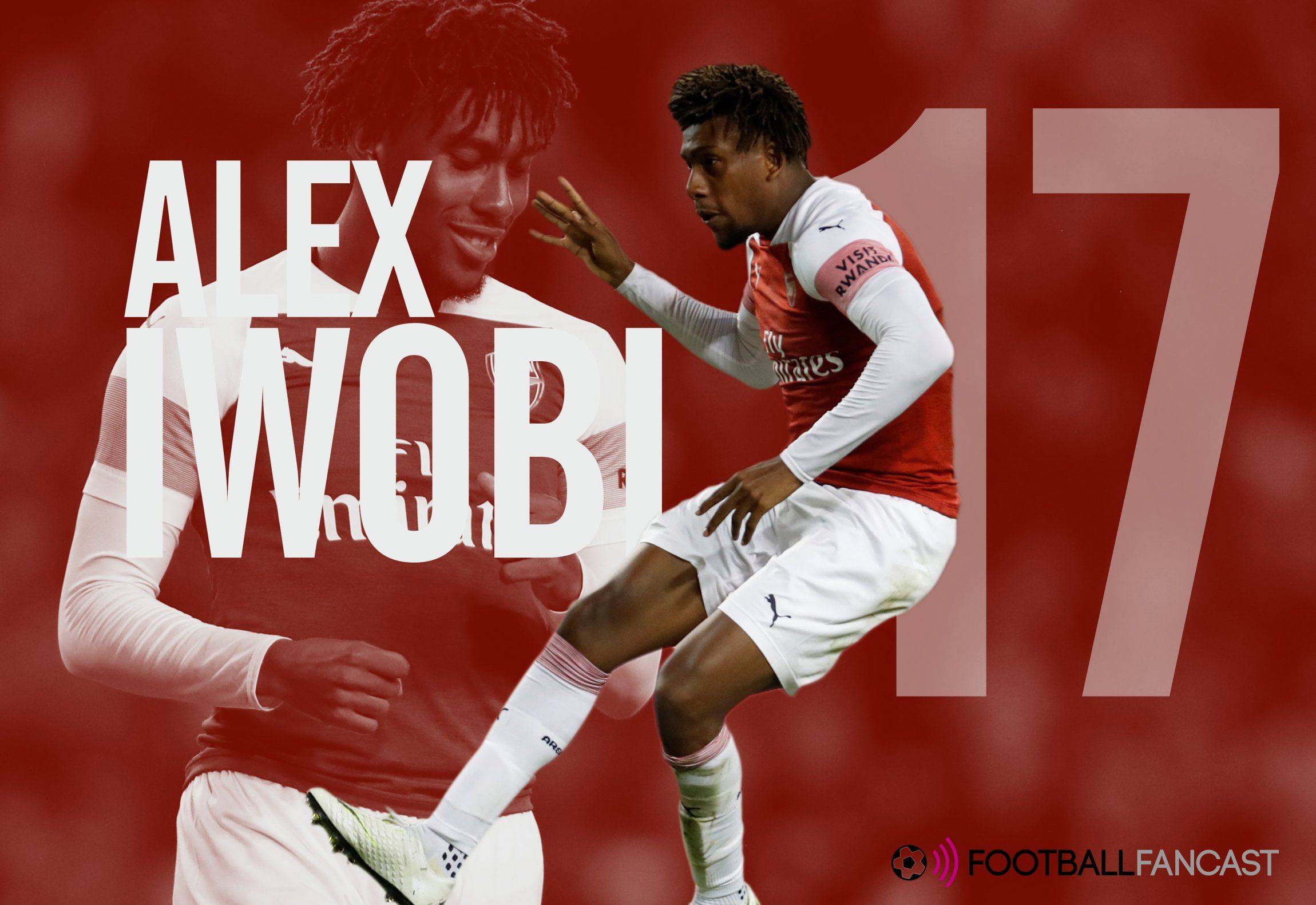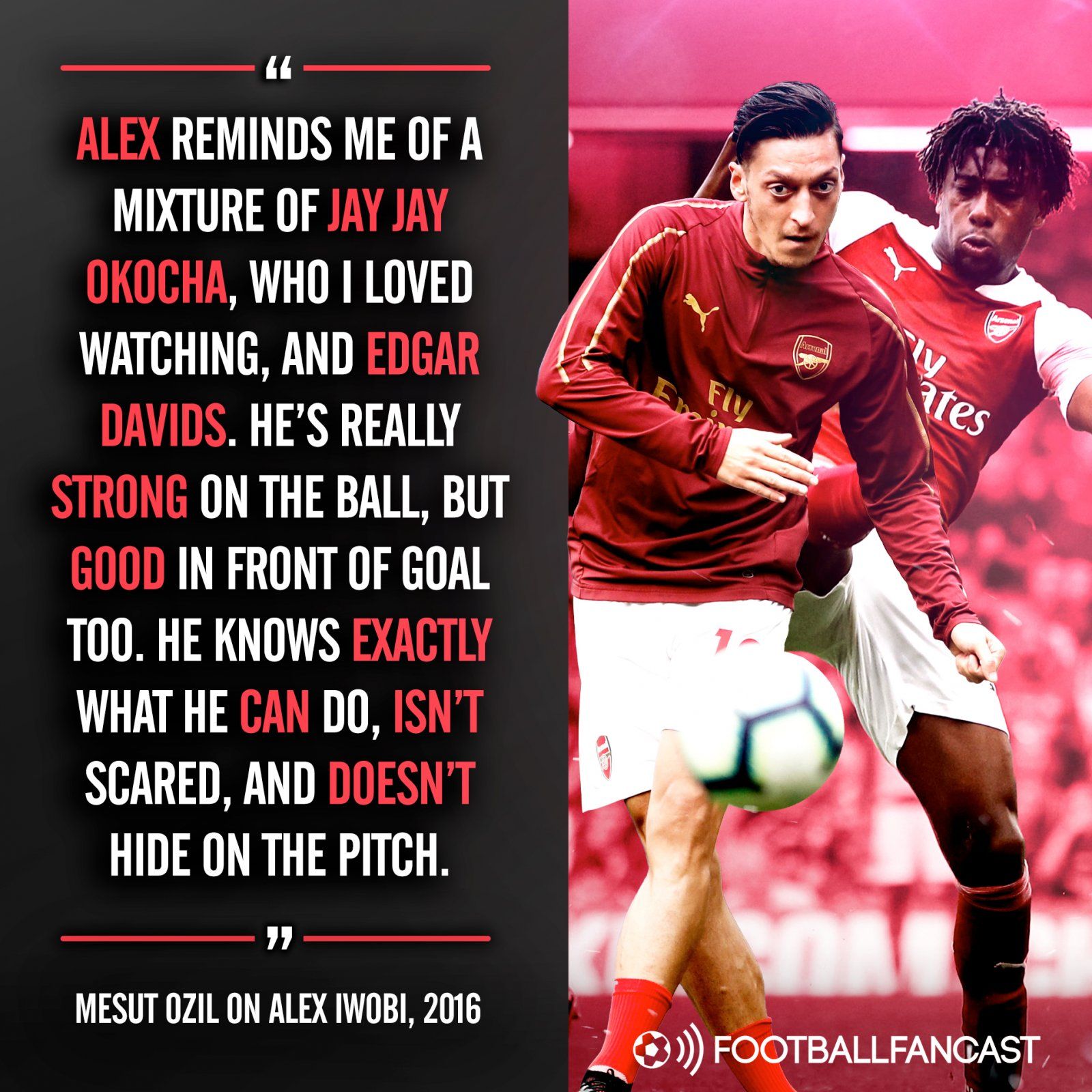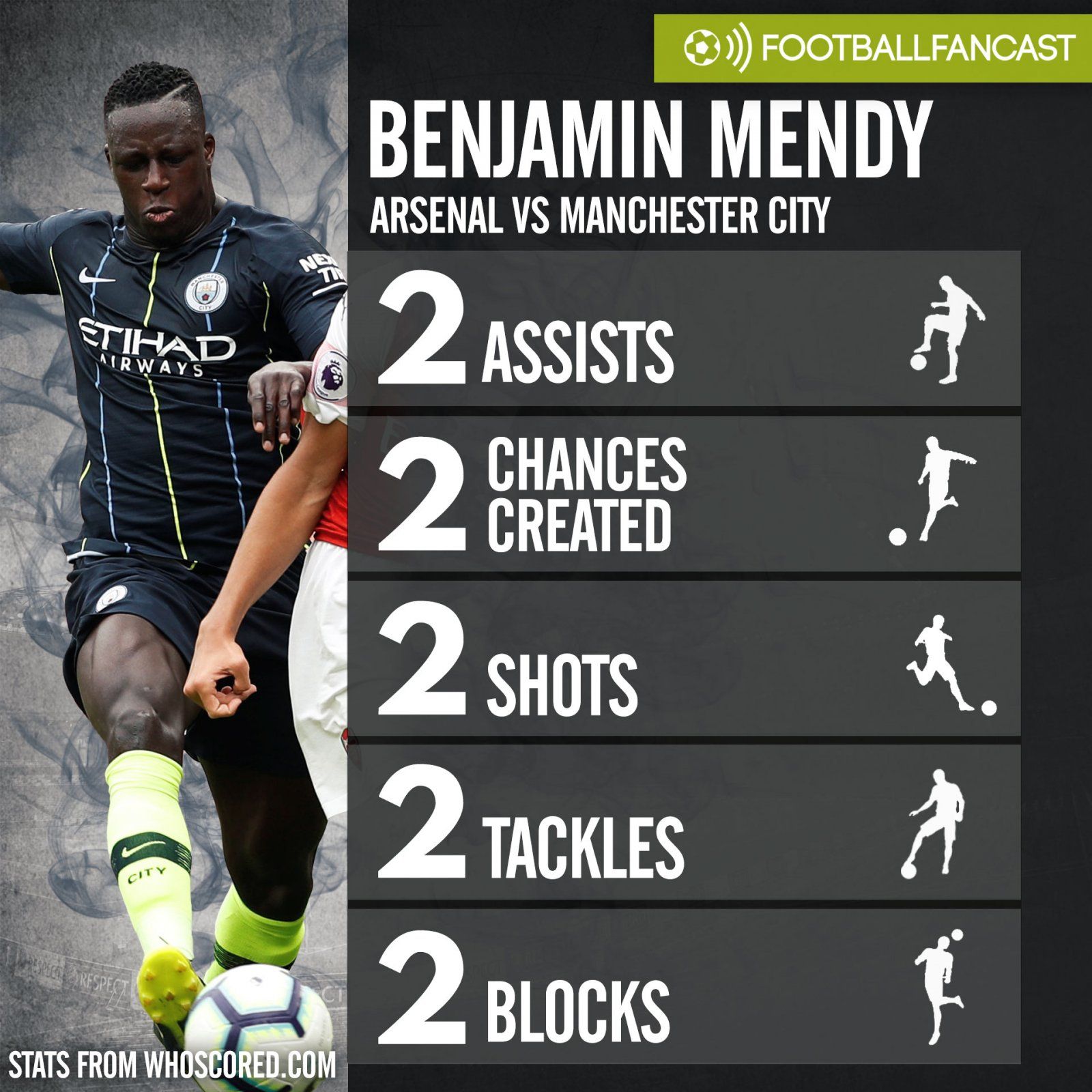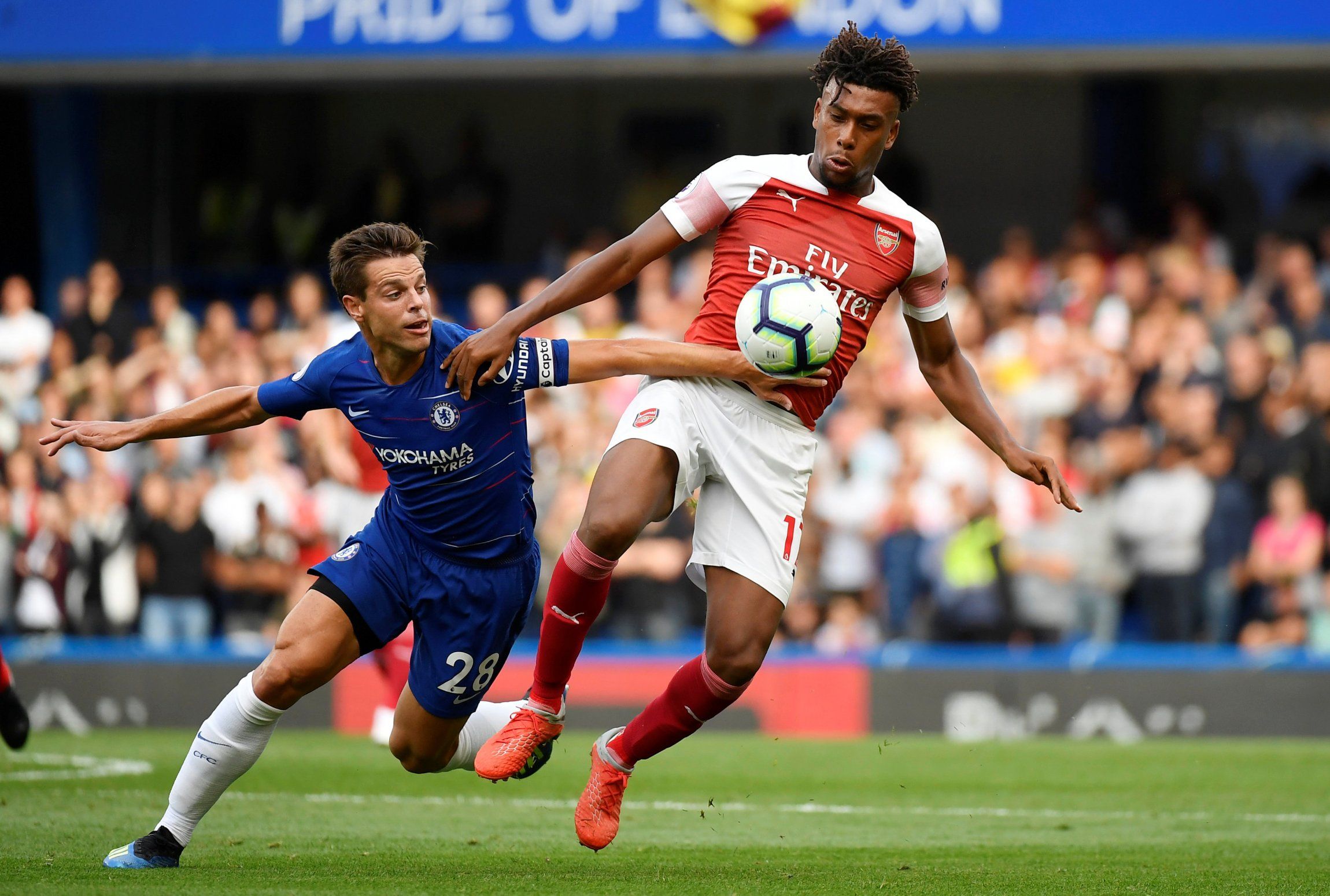[ad_pod ]
Once described by Mesut Ozil as a mixture between his famous uncle Jay-Jay Okocha and former Champions League winner Edgar Davids, Arsenal fans have a right to expect more from Alex Iwobi at this stage of his career.
Three years on from his first-team debut, the Nigerian international is still very much a fringe element in the Arsenal setup and his most well-known moment for the north London club, rather than any display of irresistible brilliance on the pitch, remains arguably being snapped at a drug-fuelled party just hours before the Gunners crashed out of the FA Cup at the hands of Nottingham Forest in January - a defeat that probably played a telling hand in Arsene Wenger's eventual departure.
Indeed, 99 Arsenal appearances have brought ten goals and 18 assists.
It's a decent return for a player of Iwobi's age, but when compared to the offensive-minded 22-year-olds at some of Arsenal's divisional rivals like Dele Alli - 47 goals and 41 assists in 148 Tottenham outings - or Leroy Sane - 23 goals and 27 assists in 89 appearances for Manchester City - much is inevitably left to be desired. Iwobi seems to be several steps behind in the development curve, despite coming from renowned footballing stock and being part of the Arsenal setup since his primary school days.
But it would be unfair to label Iwobi as yet another Premier League youngster who has failed to embrace the chances gifted to him since childhood. His unspectacular road to maturity which still awaits that moment of truly exploding into life is painfully symptomatic of the last decade of Wenger's reign.
During that time, how many irrefutably talented wonderkids have really maximised their full potential? If we're criticising Iwobi at 22 for only marginal progression, Jack Wilshere, Theo Walcott, Aaron Ramsey, Calum Chambers and Carl Jenkinson can all be accused of the same crime at much more advanced stages of their careers.
So the appointment of Unai Emery represents something of a fresh start for the Nigerian international, working under the direction of a manager with fresher, more detailed and precise ideas.
But for the new Arsenal boss too, Iwobi could be an incredibly important figure in his first season at the Emirates Stadium simply because of the nature of the squad he inherited from Wenger - something that became increasingly evident in Arsenal's spirited 3-2 defeat to Chelsea at Stamford Bridge on Saturday, especially when compared to a far more humbling loss to Manchester City the weekend previous.
With Mesut Ozil and Henrikh Mkhitaryan on the wings against the reigning champions, Arsenal's midfield became painfully dysfunctional, allowing their defensive flanks to be repeatedly exposed. Tellingly, only the introduction of Stephan Lichtsteiner managed to halt the relentless flow of traffic down Arsenal's left, while both of City's goals were sourced from Benjamin Mendy's powerful runs down the Gunners' right on the overlap.
Ozil and Mkhitaryan just didn't offer the necessary protection in those wide roles and while they received plenty of criticism, we probably shouldn't be all that surprised. After all, both have made careers from being central playmakers at the heart of the action, so neither are particularly effective at tracking back, exploding into space on the break or providing moments of sheer brilliance from wide positions.
Structurally too, they're always looking to drift inside and take up more central roles; that's all well and good in possession, but as soon as the ball's turned over they're already out of position - leaving their full-backs in two-on-one scenarios.
That's where Iwobi comes into the equation, as a more conventional wide player rather than someone doing a job on the wing hoping they get chances to find space in-field. In comparison to the City defeat, while Mkhitaryan gave Marcos Alonso practically the freedom of London at Stamford Bridge on Saturday, Chelsea's impact on Iwobi's flank was far less devastating and in fact, it's where Arsenal caused the Blues the most problems during a 15-minute spell in which they could have easy taken the lead rather than merely levelling the scores. Iwobi's equaliser, though, was just reward for an afternoon of hard work.
In the long-term, Iwobi is probably more of a central player as well. Wenger even lined him up as part of a midfield three at times last season, and he lacks the natural pace and power you'd expect of a modern day Premier League forward - someone who eats up ground on the counter-attack and is much part of the forward line as the midfield.
But right now, in a squad where the other genuine wide options only really include Danny Welbeck and youngsters like Reiss Nelson, Iwobi's relative comfort on the wing and discipline in that role offers Emery vital balance to probably his most troubled department - one that oozes offensive talent but lacks efficient structure.
And while many Arsenal fans will feel that, if a natural wide-man is indeed the solution to some of the problems Emery's 4-2-3-1 and consequential team selections have caused during their first two games of the season, an upgrade on Iwobi should be signed in January, we shouldn't write off the youngster just yet.
After all, his longest ever run in Arsenal's Premier League starting XI has been just ten games. But now the African attacker's in a position where he undertakes an important role in the functionality of the team, that could provide the chances and the platform he needs to really raise performance levels in the coming months. There are no guarantees in football, but this space is certainly worth watching.
[brid autoplay="true" video="280645" player="12034" title="Rafa's Pub Facts Dodgy De Gea & Arsenal's MiniRevolution"]




